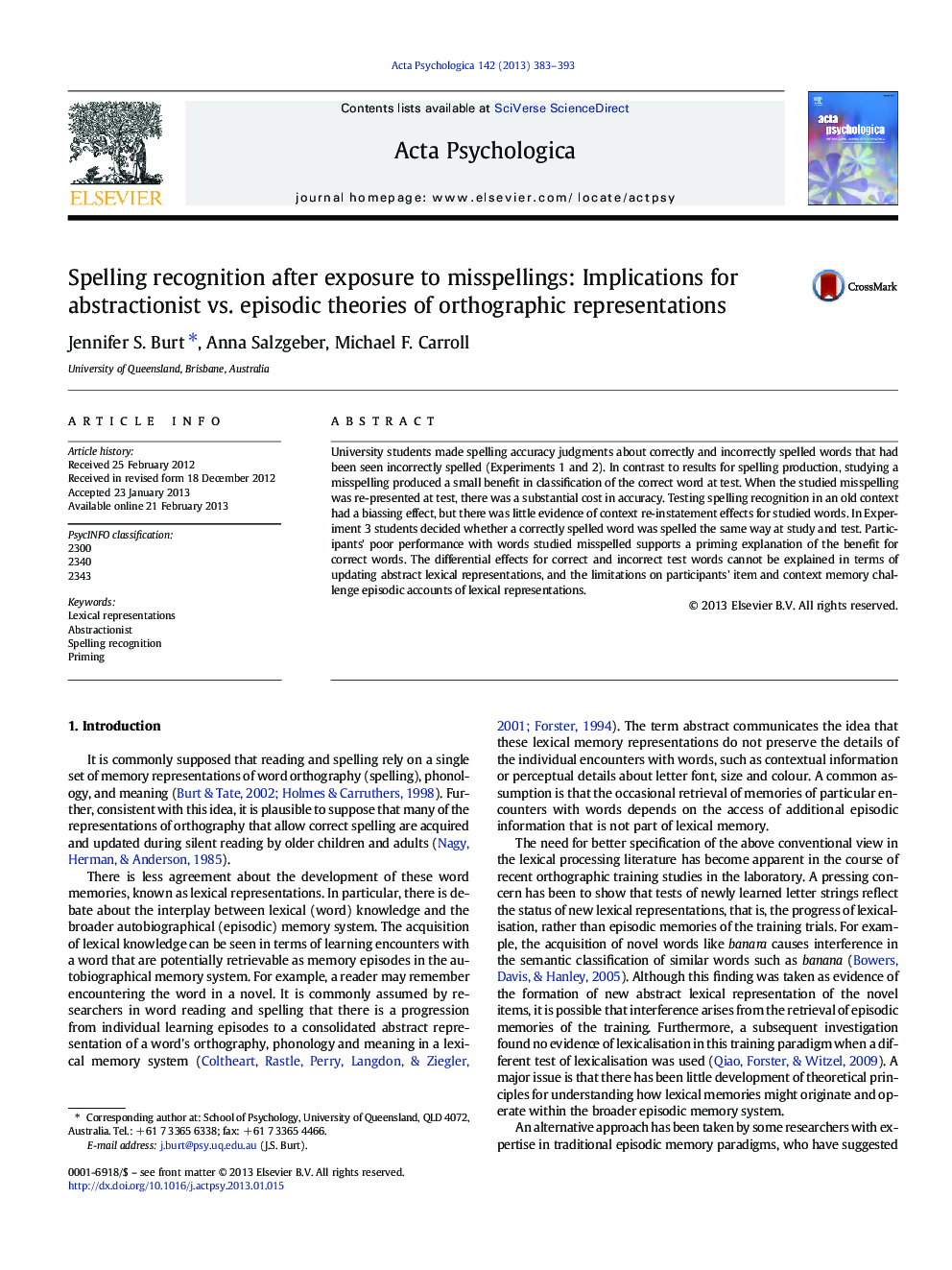| Article ID | Journal | Published Year | Pages | File Type |
|---|---|---|---|---|
| 919822 | Acta Psychologica | 2013 | 11 Pages |
University students made spelling accuracy judgments about correctly and incorrectly spelled words that had been seen incorrectly spelled (Experiments 1 and 2). In contrast to results for spelling production, studying a misspelling produced a small benefit in classification of the correct word at test. When the studied misspelling was re-presented at test, there was a substantial cost in accuracy. Testing spelling recognition in an old context had a biassing effect, but there was little evidence of context re-instatement effects for studied words. In Experiment 3 students decided whether a correctly spelled word was spelled the same way at study and test. Participants' poor performance with words studied misspelled supports a priming explanation of the benefit for correct words. The differential effects for correct and incorrect test words cannot be explained in terms of updating abstract lexical representations, and the limitations on participants' item and context memory challenge episodic accounts of lexical representations.
► Participants viewed misspellings prior to spelling recognition. ► Accuracy decreased for misspelled test words and increased for correct test words. ► Format matches at study and test did not influence the misspelling exposure effect. ► The results challenge both abstractionist and episodic theories of word memories. ► We propose sub-lexical short-term learning within an abstractionist framework.
